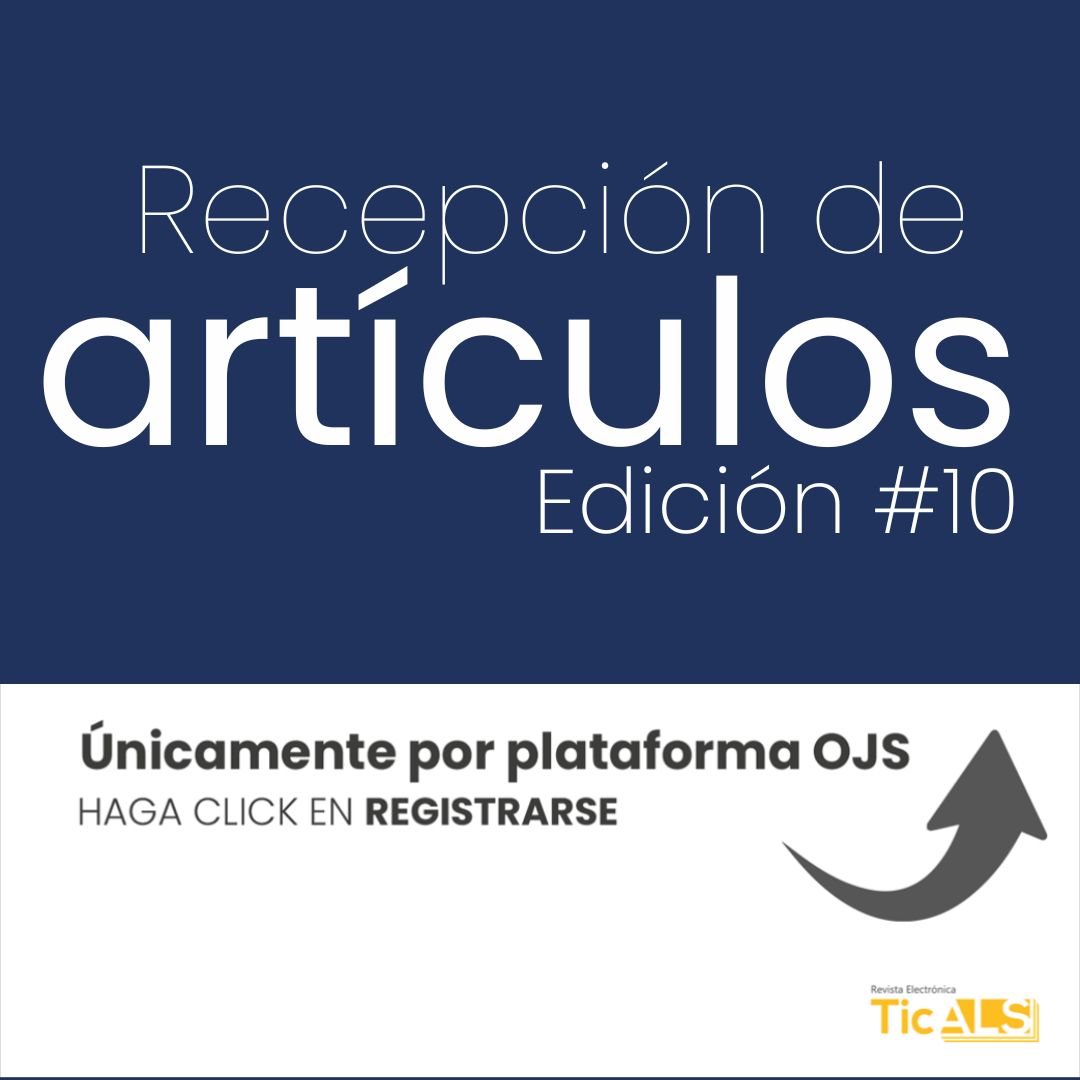
Número actual
Vol. 1 Núm. No. 10 (2024): Tecnología e Investigación en Educación

La revista TicALS es una publicación científica y académica del Colegio Bilingüe Abraham Lincoln, liderada por el grupo de investigación TicALS, cuyo objeto es incentivar la discusión y la publicación de artículos académicos en lo concerniente al campo de la educación, educomunicación y la tecnología educativa; este proyecto busca impulsar a docentes, investigadores, estudiantes, académicos, directivos docentes y todos aquellos estudiosos de las temáticas que encierran los campos del saber, a contribuir en la consolidación de una comunidad científica a nivel nacional e internacional.
Publicado:
2024-05-20
Artículos
La revista TicALS es una publicación científica y académica del Colegio Bilingüe Abraham Lincoln, en cabeza del grupo de investigación TicALS, cuyo objeto es incentivar la discusión y la publicación de artículos académicos en lo concerniente al campo de la educación, educomunicación y la tecnología educativa; este proyecto busca impulsar a docentes, investigadores, estudiantes, académicos y directivos docentes y todos aquellos estudiosos de las temáticas que encierran los campos del saber, a contribuir en la consolidación de una comunidad científica a nivel nacional e internacional.

